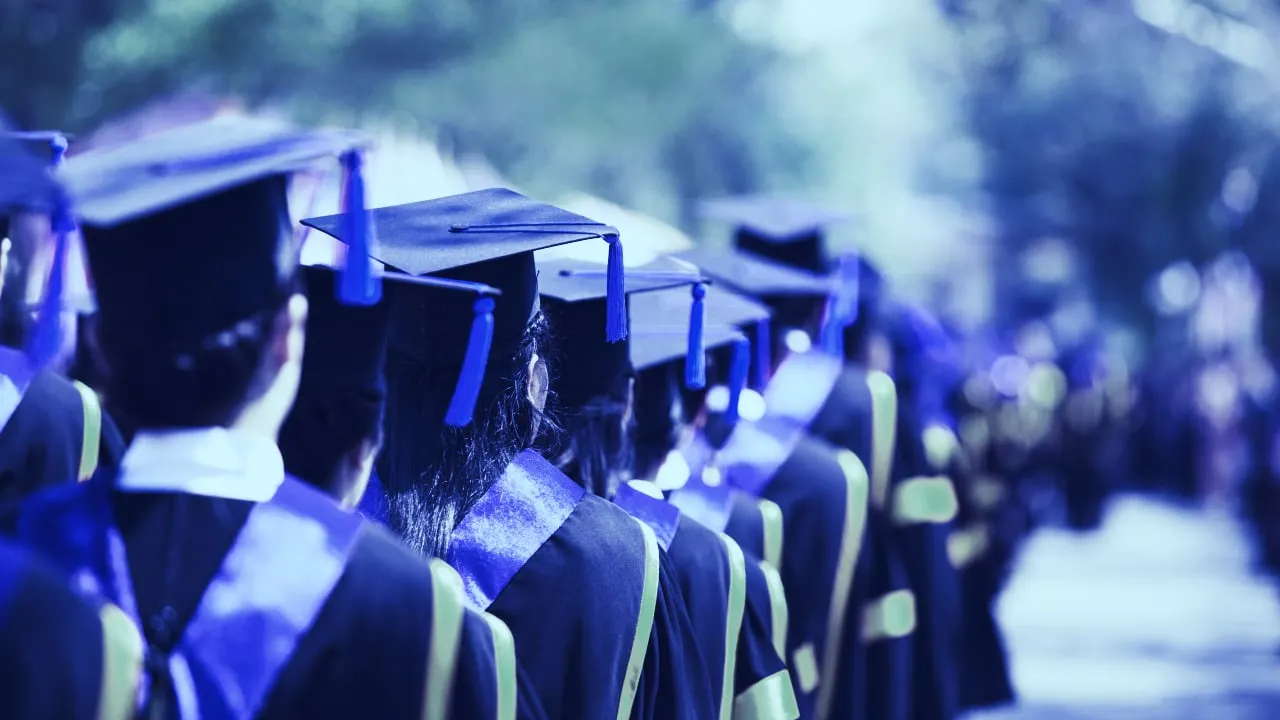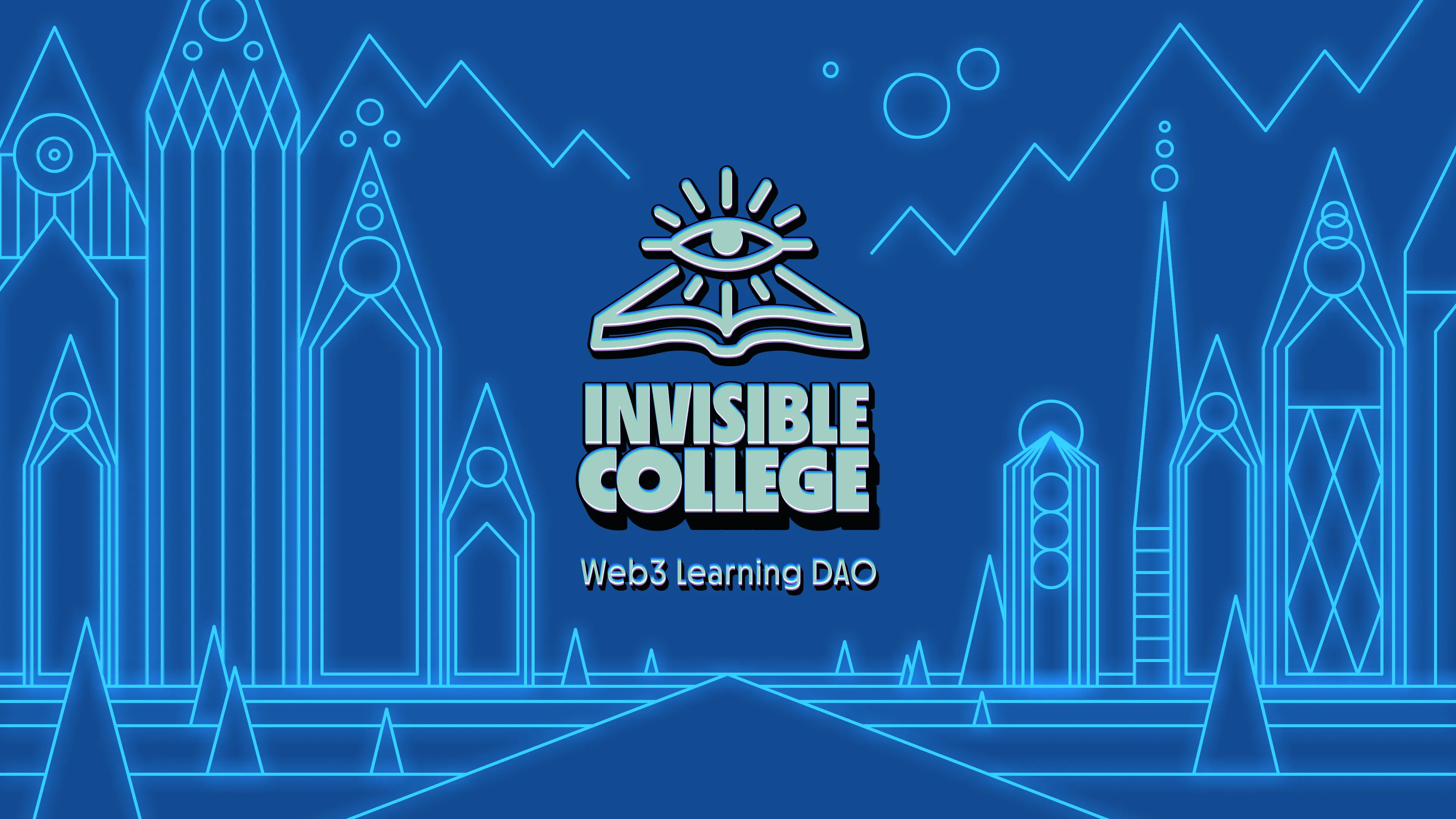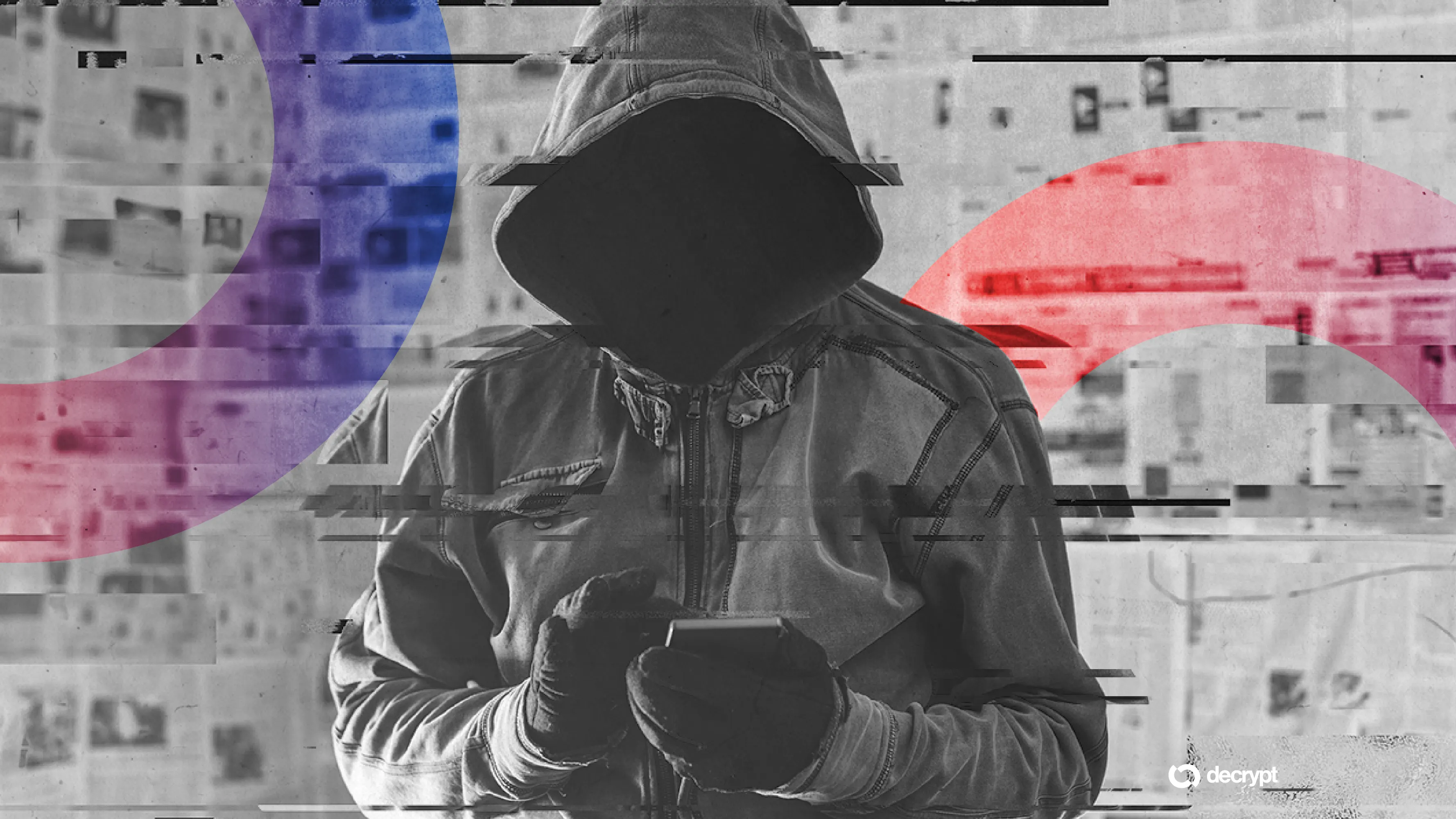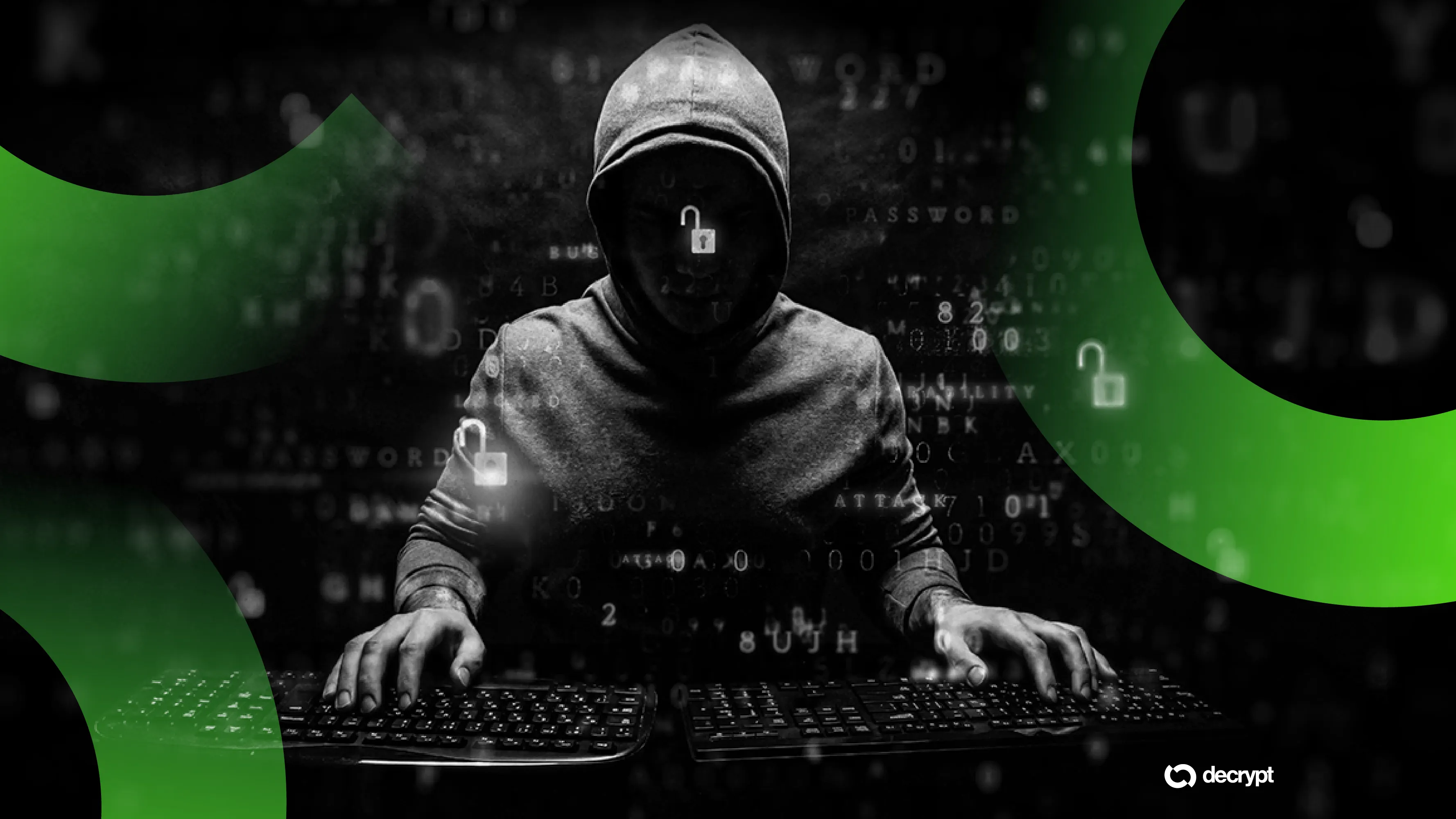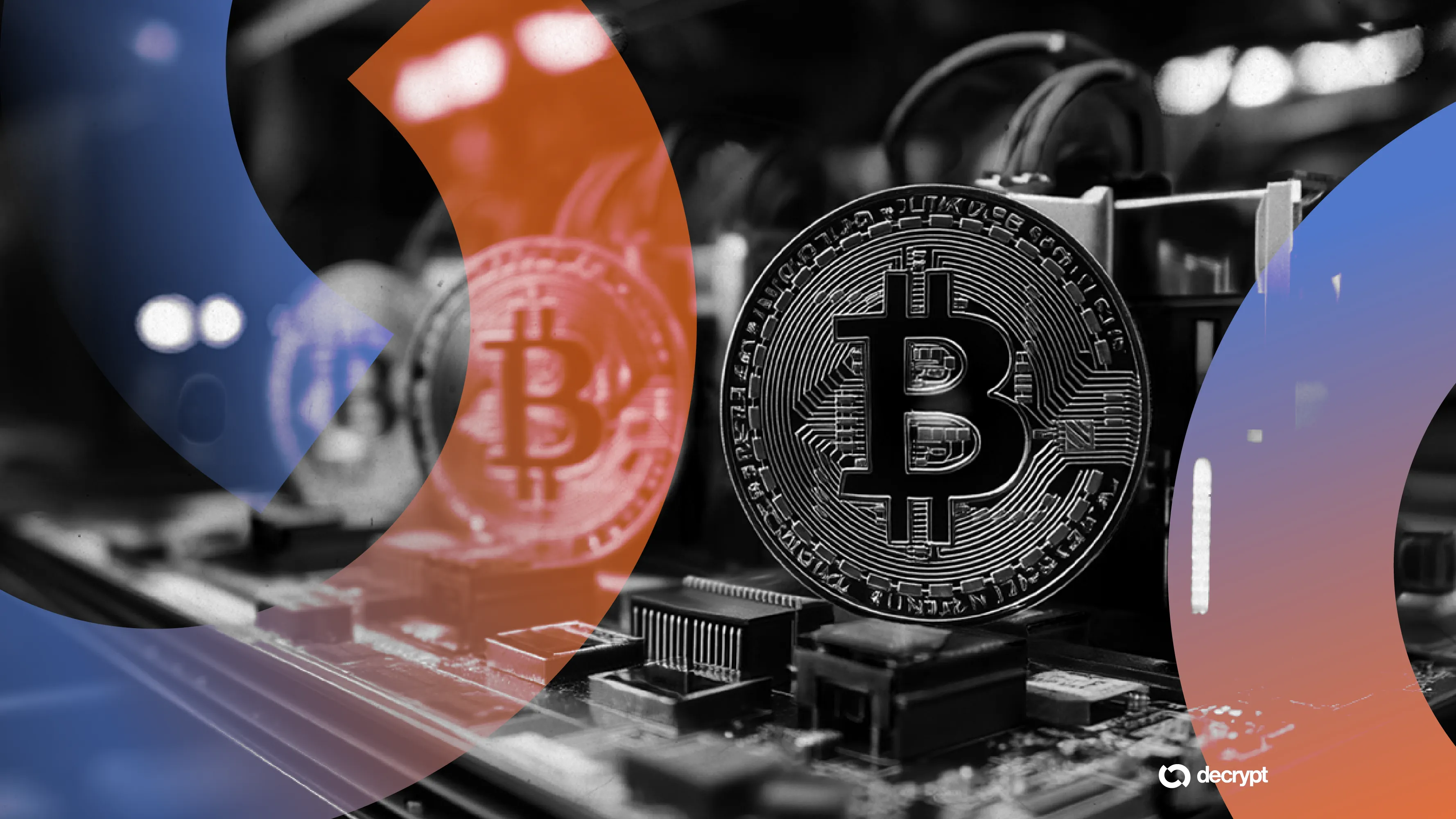In brief
- BitDAO has partnered with student groups and faculties of some of the world’s most prestigious universities to form EduDAO.
- EduDAO will serve as an independent steering committee for project grants, research, and product development.
There's a generation gap in crypto. A May survey from Mastercard, for instance, found that millennials are more interested than any other age group in learning about digital assets.
To capitalize on youthful enthusiasm for digital assets, BitDAO—a decentralized asset manager that boasts $2.5 billion in AUM—and token investor Mirana Ventures have formed a new decentralized autonomous organization that caters to college students: EduDAO.
The DAO is made up of various student and campus research organizations in the U.S., U.K, and China, including Berkeley Center for Responsible, Decentralized Intelligence; Blockchain at Berkeley; Blockchain at Michigan; Blockchain@USC; Harvard Blockchain Club; MIT Sloan Blockchain Club; Oxford Blockchain Society; Penn Blockchain; and Tsinghua University Students Blockchain Association.
DAOs have taken off as a popular way to quickly raise funds for various purchases and causes. They are online communities in which members use a token to cast votes and make management decisions. BitDAO, which raised its billions through digital asset management, plans to allocate $11 million annually to EduDAO so that member groups can conduct research and design blockchain innovations.
'Invisible College' DAO Promises Web3 Education With Tuition as an NFT
The term Web3 is everywhere, but many people aren't sure what it means or how to join it. That's why a team of veteran educators has launched "Invisible College"—a new platform to teach people about the topic using core features of Web3 itself, including NFTs and a decentralized community known as a DAO. The curriculum will be voted on by the DAO itself, but is likely to include lessons on topics like how to build a token-based play-to-earn economy, according to one of the "Invisible College" fo...
The concept for EduDAO came from Jon Allen, managing partner for Mirana Ventures. "The idea is to create autonomous entities like EduDAO in which BitDAO helps identify motivated experts in a specific domain," Allen told Decrypt via email. "Set a mandate and structure, capitalize it, and let this autonomous entity do what it thinks is best."
Allen says to manage risk, funds will be distributed in six-month intervals; if BitDAO holders no longer believe the DAO is meeting expectations, they can vote to discontinue funding.
BitDAO says in return for funding, EduDAO members will participate in BitDAO governance votes to determine that protocol's development. They will also give back to BitDAO itself by building governance or treasury tools or by contributing to otherBitDAO projects that are receiving funding.
Whereas DAOs typically require a token to function, Allen suggested that EduDAO may employ a multisig wallet instead—which would require multiple member groups to use their crypto private keys to sign off on expenditures.
Now the real work begins. Want to get your school involved? Visit https://t.co/17PBhPJrur
— BitDAO (@BitDAO_Official) December 16, 2021
EduDAO says the aim is to provide university groups with a broader reach, enabling blockchain innovation through funding and advancing collaboration and information. EduDAO's research will be shared among participating universities and the public via the BitDAO protocol.
While the short-term goal is to fund innovation within universities, Allen said the long-term goal is to democratize education so that it does not matter what university a student attends or what physical location they are in; all they will need is access to a basic internet connection and a desire to learn.
Said Allen: "We hope to provide resources and structure to help anyone and everyone go from 0 to 1 and be able to engage with blockchain and Web3 in a meaningful way."

